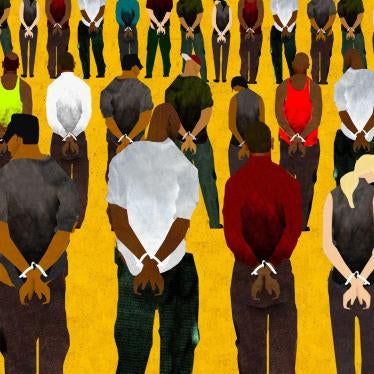- Descheduling marijuana, as maintaining marijuana on the Controlled Substances Act serves to preserve federal criminalization and enforcement.
- Criminal justice reform provisions (e.g. expungement, resentencing).
- Provisions eliminating barriers to access to public benefits (e.g. nutrition assistance, public housing, etc.) and other collateral consequences related to an individual’s marijuana use or previous arrest or conviction.
- Provisions eliminating unnecessarily discriminatory elements for marijuana use, arrests and convictions, including drug testing for public benefits or marijuana use as a reason for separating children from their biological families in the child welfare system.[9]
- Provisions that ensure that marijuana use or participation in the marijuana industry does not impact the immigration status of noncitizens nor their ability to naturalize.
- Marijuana tax revenue be directed to local units of government and community-based organizations to reinvest in individuals and communities most impacted by the war on drugs, particularly through programming that helps eliminate the collateral harms of marijuana prohibition, especially for individuals with systemic and structural barriers to employment and/or living in high-poverty communities.
- Marijuana tax revenue be directed to support entrepreneurs from communities directly impacted by the war on drugs with a process to provide them with the requisite capital to develop cannabis businesses, and encourage emerging licensing programs to be inclusive and reflective of their communities.
Signed by the members of the Marijuana Justice Coalition:
ACLU • Center for American Progress • Center for Law and Social Policy •
Drug Policy Alliance • Human Rights Watch • Immigrant Legal Resource Center •
JustLeadershipUSA • Lawyers’ Committee for Civil Rights Under Law •
Leadership Conference on Civil & Human Rights • NORML • Students for Sensible Drug Policy
[1] Federal Bureau of Investigations: Uniformed Crime Reporting. “2017 Crime in the United States.” https://ucr.fbi.gov/crime-in-the-u.s/2017/crime-in-the-u.s.-2017/topic-pages/persons-arrested; American Civil Liberties Union. Report: The War on Marijuana in Black and White. June 2013. https://www.aclu.org/report/report-war-marijuana-black-and-white
[2] Drug Policy Alliance. The Drug War and Mass Deportation. February 2016. https://www.drugpolicy.org/sites/default/files/DPA%20Fact%20Sheet_The%20Drug%20War%20and%20Mass%20Deportation_%28Feb.%202016%29.pdf
[3] Center for American Progress. Voters Across Party Line Support Clean Slate Legislation. https://www.americanprogress.org/issues/criminal-justice/news/2018/06/20/451624/voters-across-party-lines-support-clean-slate-legislation/
[4] Center for American Progress. Voters Across Party Line Support Clean Slate Legislation. https://www.americanprogress.org/issues/criminal-justice/news/2018/06/20/451624/voters-across-party-lines-support-clean-slate-legislation/
[5] National Organization for the reform of Marijuana Laws. “State Laws: Medical Marijuana” https://norml.org/legal/medical-marijuana-2; Leafly. “Where is Cannabis Legal?” https://www.leafly.com/news/cannabis-101/medical-recreational-cannabis-legal-states
[6] Berson, Sarah. National Institute of Justice. “Beyond the Sentence – Understanding Collateral Consequences.” https://www.nij.gov/journals/272/Pages/collateral-consequences.aspx
[7] Clarke, Kristen. USA Today. “Cannabis industry shouldn’t expand until we fix marijuana’s racial inequities, injustices.” https://www.usatoday.com/story/opinion/2019/02/22/marijuana-legalization-exposes-cannabis-industry-racial-injustice-incarceration-minorities-column/2836449002/
[8] Amendment effective April 19, 2019 to United States Customs and Immigration Services Policy Manual, Volume 12, Chapter 5, Part C.2, at https://www.uscis.gov/policy-manual/volume-12-part-f-chapter-5, effective April 19, 2019 (“[C]certain conduct involving marijuana, which is in violation of the CSA, continues to constitute a conditional bar to GMC for naturalization eligibility, even where such activity is not a criminal offense under state law … For example, possession of marijuana for recreational or medical purposes or employment in the marijuana industry may constitute conduct that violates federal controlled substance laws.”).
[9] Emma Ketteringham. New York Daily News. “Families torn apart over pot: As N.Y. moves to legalize marijuana, it must fix agonizing disparities that take children from black and brown mothers and fathers.” https://www.nydailynews.com/opinion/ny-oped-families-ripped-apart-over-pot-20190508-qtrnmuyztzfr7let4vxjxga7zm-story.html






